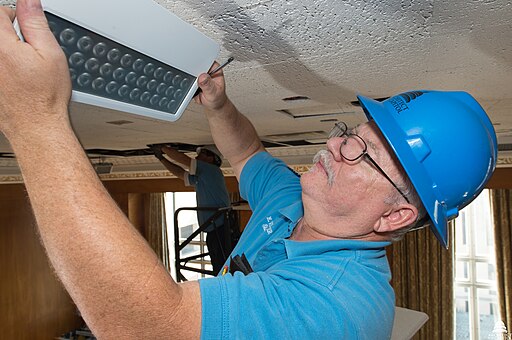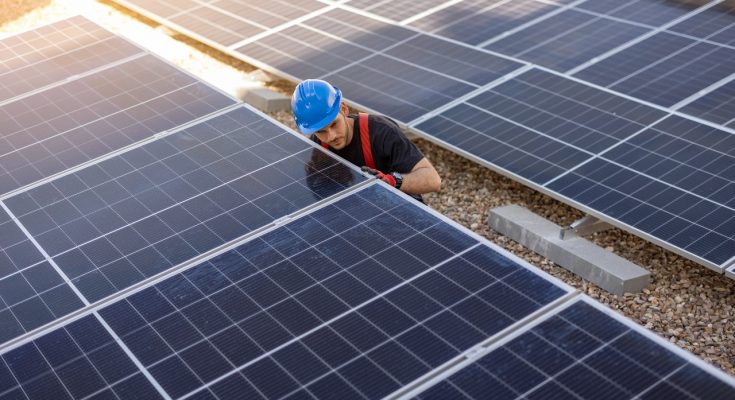If you’ve been doom scrolling through news of the commercial real estate industry, you’re not alone. Forecasts have been painting a miserable picture. However, some recent encouragement from Jerome “Jay” Powell, Chair of the Federal Reserve, may be picking up spirits. For the economy at large, anyway. Things may be a bit more complex for office space investments as buildings enter the crunch to meet the contemporary standards of net zero buildings. This means there is a light at the end of the tunnel. The question then becomes: how long is the tunnel?
Things Are Tough. But Not as Tough as Projected.

As we covered recently, there is some belief that the banking crisis will lead to a crash of the commercial real estate industry. Yet, as Powell recently stressed, this isn’t likely to be the system-rocking event many media outlets are painting. He admitted that banks with more exposure to commercial investment will have higher risk. But overall, the economy should be able to weather any turbulence due to resources being so well distributed across the banking industry.
That’s great for the economy, but is that good news for the commercial real estate industry? Speaking with CoStar recently, Steve Martin, a managing principal at SDM Partners, describes tough times. But they’re tough times with clear solutions.
Incentivizing Net Zero Buildings for Commercial Space
Martin estimates that anywhere between 20 percent to 25 percent of office buildings in the U.S. are now “obsolete.” And the solution? Another topic we’ve explored in this blog ad nauseam: repurposing office space.

In most cases, this will mean going to great lengths to satisfy the Inflation Reduction Act. Unfortunately, this is much easier said than done. Yet, there are plenty of tax incentives to be had for those creating net zero buildings. And public demand may not leave much of a choice anyway.
Giving the People What They Want
According to Martin, we’re entering a time when pristine suburban office space doesn’t cut it. Instead, future commercial buildings will need to seek out already developed hot spots. Think community areas like gyms, shopping centers, and dining options. The people are already there. The office space needs to go where the people are; not bank on the power of an office to attract all the rest.
The Net Zero Buildings on the Horizon
But then there’s also the issue of the underutilized office space we’ve been seeing since the pandemic. An emphasis has been placed on creating net zero buildings. But contemporary standards aren’t so easily applied to decades old structures. In many cases, it will actually be more cost-effective to demolish older buildings and construct net zero buildings from scratch.

Efficiency will be at the heart of the next wave of commercial office space. Net zero buildings will need to have smart systems in place while conserving energy and water and drastically reducing carbon and other wastes. This means tenants of these net zero buildings will likely need to pay elevated rents to offset the initial costs.
The Silver Lining
We get that this still doesn’t sound like good news to real estate investors and developers. Yet, it’s preferable to the headlines we’ve read recently heralding the death of commercial real estate. In the meantime, citizens can expedite the repurposing of older properties into net zero buildings by petitioning their local governments.




